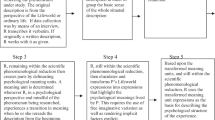Summary
. Dream work is one of the significant discoveries which Freud described in his Dream interpretation. It contains the processes of transformation of unconscious thoughts into the manifest dream. The dream, thus, is structured like a neurotic symptom as a compromise between unconscious infantile wishes and defense. Contemporary psychoanalytic theories of thinking and the distinction between explicit and implicit memory which was introduced by the neurosciences offer a broader understanding of the process of dreaming. It may be seen as thinking during the sleep. Thus it becomes obvious that dream work in the sense of Freud’s ideas is based on the more fundamental capacity to dream which the author calls implicit dream work. He assumes that it reflects the early experience of the alpha function which was described by Bion. Unsufficient development of the capacity to dream may cause dream disorder which becomes manifest by the experience to be an individual that ”does not dream”.
Zusammenfassung.
Die Traumarbeit als Gestaltung manifester Trauminhalte aus unbewussten Gedanken gehört zu den bedeutenden Entdeckungen Freuds in seiner „Traumdeutung.” Er konzipiert das Träumen wie ein neurotisches Symptom als Kompromiss zwischen Wunsch und Abwehr. Die neueren psychoanalytischen Theorien des Denkens und die neurowissenschaftliche Unterscheidung zwischen dem impliziten Prozessgedächtnis und dem expliziten Inhaltsgedächtnis erweitern das Verständnis für das Träumen, das heute als Denken im Schlaf konzipiert werden kann. Dadurch wird deutlich, dass die Traumarbeit im Sinne Freuds auf einer basaleren „impliziten Traumarbeit” aufbaut, welche als Fähigkeit zum Träumen ein Abbild der primären Denkprozesse darstellt und mit einer gelungenen Erfahrung der „Alphafunktion der Mutter” erklärt werden kann. Wenn diese Fähigkeit nicht hinreichend entwickelt wird, entsteht eine Traumstörung. Sie manifestiert sich darin, dass das Träumen als solches psychisch nicht repräsentiert ist und als scheinbar bedeutungsloses Geschehen während der Nacht auch nicht in der Erinnerung haften bleibt. Sie kann sich in dem subjektiven Erleben äußern, ein Mensch zu sein, der „nicht träumt”.
Similar content being viewed by others
Rights and permissions
About this article
Cite this article
Ermann, M. Traumstörung . Forum Psychoanal 16, 358–371 (2000). https://doi.org/10.1007/s004510000071
Issue Date:
DOI: https://doi.org/10.1007/s004510000071



